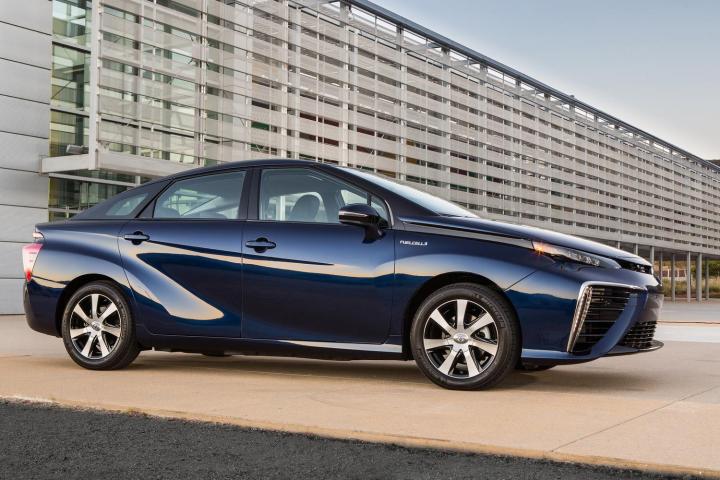
Toyota has partnered with organizers to provide transportation at the 2020 Tokyo Olympic and Paralympic Games. The automaker and the Tokyo Olympic organizing committee want to achieve the lowest emissions of any vehicle fleet at any Olympic Games, so Toyota is rolling out an array of battery-electric, plug-in hybrid, and hydrogen fuel-cell vehicles for the job. The 3,700-vehicle fleet will include everything from buses to scooters. Some vehicles may even operate autonomously.
The fleet will include about 500 hydrogen fuel-cell vehicles and 850 battery-electric cars. Toyota claims it’s largest fleet of those vehicles ever assembled for an Olympic Games. Many of the vehicles will be current production models, including the Toyota Mirai fuel-cell sedan and Prius Prime plug-in hybrid, as well as the Sora fuel-cell bus.
Cars and buses will be used to transport people between venues, but Toyota will also help keep people moving once they’ve arrived at a venue. The automaker plans to deploy 300 “personal mobility devices” for use by security and medical staff. These units are configured for both standing and seated riding, and can also be attached to wheelchairs.
Toyota will even put some of its recent concept cars into action. A dozen e-Palette electric vehicles will run on a continuous loop within the Olympic and Paralympic Village. Unveiled at CES 2018, the e-Palette is Toyota’s vision of what a vehicle designed purely for ridesharing and delivery services will look like. The e-Palette was designed for autonomous driving, according to Toyota, but will have human operators on board during the Olympics.
The Concept-i — Toyota’s concept car from CES 2017 — will be used in the Olympic torch relay. A small electric car with Lamborghini-like scissor doors, its standout feature at CES was an artificial intelligence (A.I.) interface named Yui that could read people’s emotions. Like the e-Palette, the Concept-i was designed for autonomous driving, but it’s unclear if the car will drive itself during the torch relay. Toyota also developed a futuristic golf cart called the APM for the Olympics. It’s designed to help attendees with special needs get around within Olympic venues.
The 2020 Tokyo Olympics provide a great opportunity for Toyota to show off its technology. Japan’s revolutionary Shinkansen high-speed trains were introduced to the world at the 1964 Tokyo Olympics, after all. But that’s assuming everything goes smoothly. At the 2012 London Olympics, a fleet of hydrogen fuel-cell London taxis had to be trucked 130 miles for refueling — negating any reduction in emissions from the cabs. Toyota has long been a strong proponent of fuel cells, so a similar issue at the 2020 Olympics would be a major embarrassment for the company.


